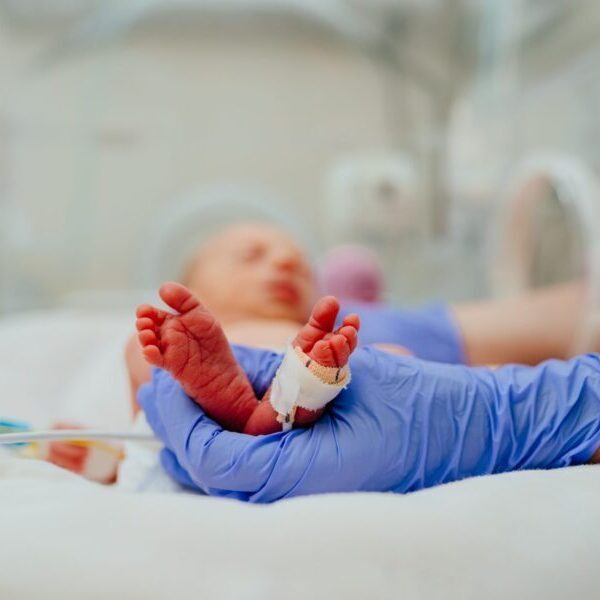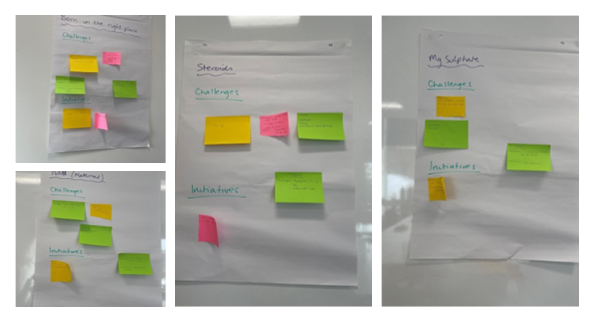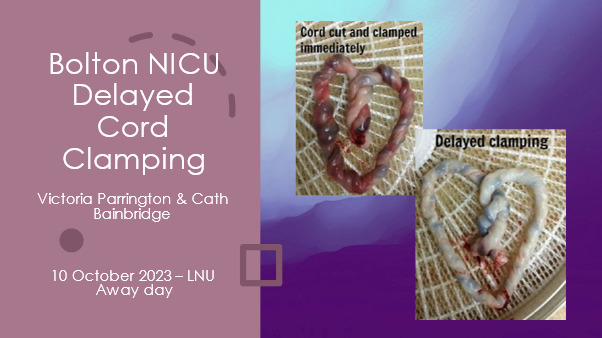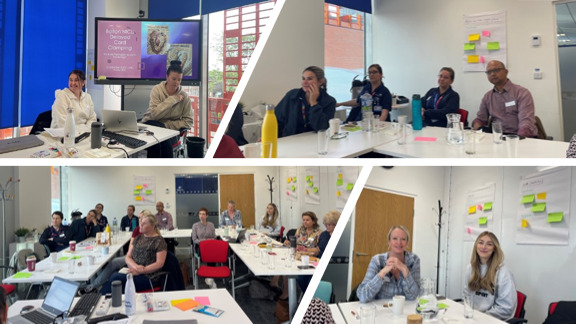This website uses cookies so that we can provide you with the best user experience possible. Cookie information is stored in your browser and performs functions such as recognising you when you return to our website and helping our team to understand which sections of the website you find most interesting and useful.
20 Dec 2023
Reflective blog from the Local Neonatal Unit Away Day

In this blog from Caroline Finch, Programme Development Lead for the Patient Safety Collaborative (PSC) at Health Innovation Manchester (HInM), she discusses the reflections from the Local Neonatal Unit away day from October 2023.
A preterm birth is one that happens before 37 weeks of pregnancy, and it is estimated that nearly 58,000 babies are born prematurely in the UK every year. This means that 1 in every 13 babies born in the UK will be born premature. What does the GMEC picture look like for preterm births? In 2021 we had a total of 3126 babies born prematurely and in 2022 we saw a slight increase in this figure to 3264 preterm births which means that 1 in 10 babies born in GMEC are premature. Therefore, it is important that we give our preterm babies the best start in life.
The Maternity and Neonatal Safety Improvement Programme (MatNeoSIP) is a national patient safety programme commissioned by NHS England. One of the primary drivers of the programme is the optimisation and stabilisation of the preterm infant which is achieved by embedding into clinical practice an optimisation care bundle proven to improve morbidity and mortality. Health Innovation Manchester is working in collaboration with Catherine Nash, Lead Quality Improvement Nurse for the North West Neonatal Operational Delivery Network (NWNODN) across maternity and neonatal providers in Greater Manchester and Eastern Cheshire (GMEC).
Over the past two years this collaborative approach has allowed us to share expertise, knowledge, and resources to support out local teams with the implementation of the optimisation and stabilisation of the preterm infant workstream. However, since the Covid pandemic teams have to some degree been working in silo and only meeting on ‘virtual’ events, what has been missing is the personal face to face contact which will allow for true collaboration to take place.
Following conversations with our optimisation teams there was a clear appetite for a in person event with the local neonatal unit (LNU’s) teams within GMEC. The objectives were learning from each other, ‘our successes and failures’, problem solving how we can continue to improve the data on the optimisation measures to ensure sustainability has been achieved and more importantly networking opportunities.
We felt that it was important that Catherine, Rebecca Williams (Project Officer at Health Innovation Manchester) and I (Programme Development Lead for MatNeoSIP) were the facilitators for the day and any outputs would come from the participants of our five LNU’s. Firstly, we asked that they work within their own teams to discuss one challenge and one initiative for each of the nine optimisation measures and feed this back to the group.

This activity generated a lot of discussion with teams highlighting what quality improvement (QI) initiatives they had utilised to see an improvement in the outcomes.
Vicky Parrington and Cath Bainbridge from Bolton NHS Hospital neonatal unit gave a presentation on how they had worked as a perinatal team to improve the number of babies receiving optimal cord management (OCM) employing QI methodology which has seen an improved and sustained data.

This session emphasised the importance of team working when everyone has the same goal – which is improving outcomes for our little babies. Vicky and Cath explained that they had implemented:
- Visual posters on staff’s roles and responsibilities to carrying out OCM
- Facilitating teaching on the Doctors six monthly rotations
- Monthly data deep dives into our data on why babies haven’t achieved so we can learn for next time

In addition, to this the Lead Consultant on OCM, Dev Kumar and the Education team with the help of medical illustration created videos on how to prepare and carry out OCM in both the theatre and delivery room setting which was shared with everyone.
Feedback from the session
- Learning optimisation techniques from other units
- Good engagement
- Seeing how different units are performing and delivering each intervention
- Like that everyone was willing to discuss and get involved
- Was a great day and really valuable to create change and share ways of working




